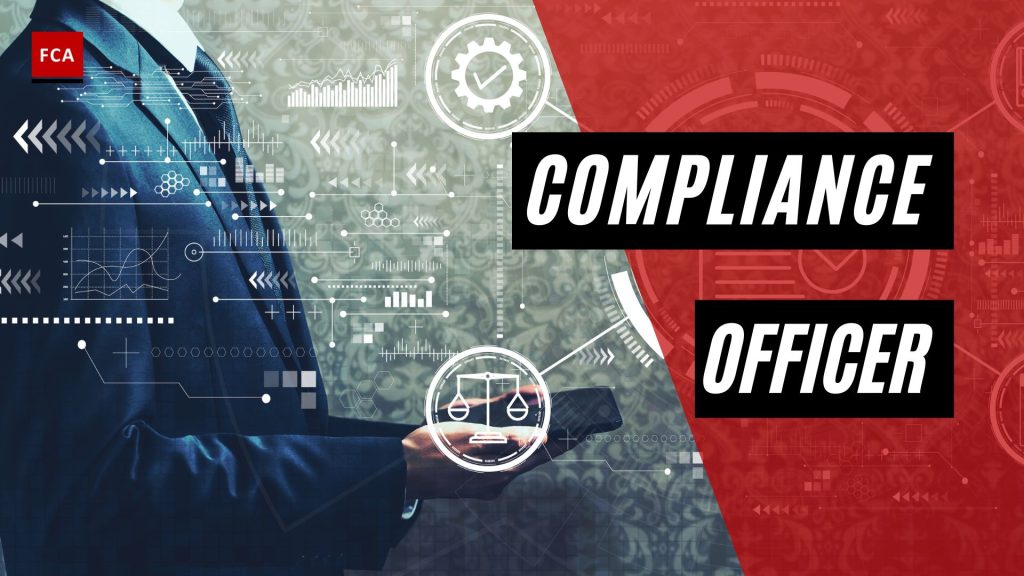The compliance officer is a professional who works as a subject matter expert in regulatory compliance. As the compliance field is vast, Compliance Officers specialize in certain regulatory compliance functions, such as Anti Money Laundering/Know Your Customer or AML/KYC Compliance, Data Protection Regulations Compliance, Information Security Compliance, etc.

Compliance Officer Responsibilities
Compliance officers ensure that individuals who violate regulations and rules are punished per disciplinary policy. Taking disciplinary action is the responsibility of management. The compliance officer must monitor how each case of irregularity is investigated and detect any inconsistencies in this process to ensure that double standards are not followed and required disciplinary action is taken against the concerned employee.
Compliance officers are responsible for closing “loopholes” in the processes and ensuring that the same errors do not reoccur. When it is determined that a particular problem or irregularity occurred due to a system defect, suppose the process was not defined well or completely, the compliance officer will direct the relevant departments to take corrective action. Compliance officers intervene in the relevant processes by more clearly defining certain actors’ processes or responsibilities, introducing compliance controls, etc.
Compliance officers take part in crisis management. Sometimes the flaws that occur are extensive and significant for the organization, posing a significant risk to the organization’s reputation. In this case, a crisis communication and management strategy must be developed. One of the actors who should be involved in this process is the compliance officer.
In addition, the compliance officers do the following:
- Monitor the compliance and implement second-level compliance controls
- Communicate with staff and employees through reporting channels
- Investigate irregularities
- Implement compliance risk assessments
- Conduct compliance audits whichare carried out by independent third parties to ensure the independence of the assessment of program effectiveness, and also they can be a source of knowledge about potential irregularities.
The compliance officers define annual plans and activities to be implemented within the framework of the Compliance Program, which is approved by the organization, to carry out these activities systematically and to plan the assets and time required for their implementation.
This is important to understand that the top management has the ultimate responsibility for the conduct of the organization.
The management manages the company and makes decisions related to the company. At the same time, the compliance officer advises the management concerning compliance, action in cases of identified irregularities, defining corrective action, education, communication with the public in case of reputation risk, etc. The compliance officer’s role is to provide all relevant information for decision-making to management, including risk assessment in the case of certain decisions. Still, the final decision is always made by management.
Compliance officers help the organization follow the established rules described earlier. Therefore, they need to have the support of the top management so that they can achieve the best possible results in their work of protecting the company from financial, reputational, and regulatory risks.
Skills of Compliance Officer
The most important skills of a compliance officer include leadership, writing, public speaking, ethical decision-making, communications and training, and instructional design.
From the tasks and duties of the compliance officer presented earlier, it is evident what knowledge and skills a compliance officer needs. Compliance officers need many different skills, especially Active Listening and Reading Comprehension. The revealed comparative advantage or RCA shows that Compliance officers need more than the average amount of Social Perceptiveness, Writing, and Speaking.
Final Thoughts
A compliance officer is a company employee who ensures that the company is in compliance with its external regulatory and legal requirements, as well as internal policies and bylaws. The chief compliance officer is typically in charge of a company’s compliance department.
Compliance officers owe it to their employers to collaborate with management and employees to identify and manage regulatory risk. Their goal is to ensure that an organization has adequate internal controls in place to measure and manage the risks it faces. Compliance officers provide an in-house service that effectively assists business units in meeting their legal, regulatory, and internal procedures obligations. The compliance officer is frequently, but not always, the company’s general counsel.









